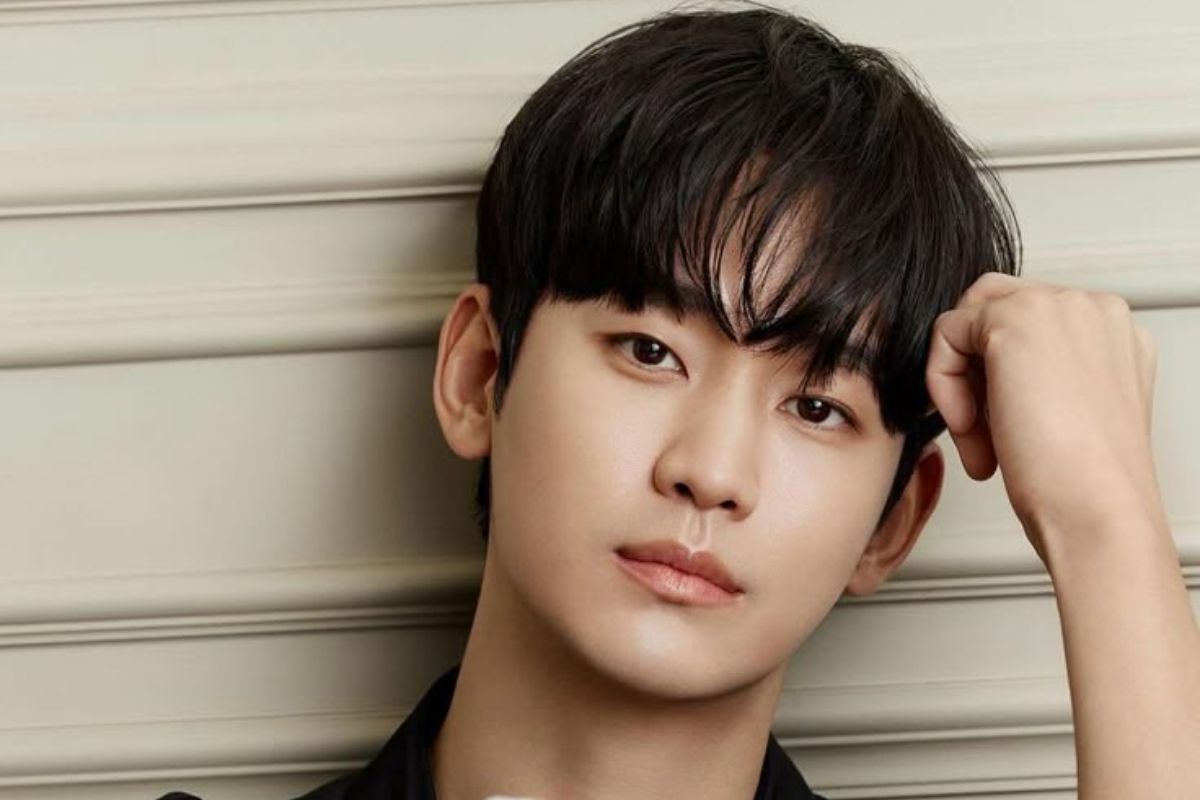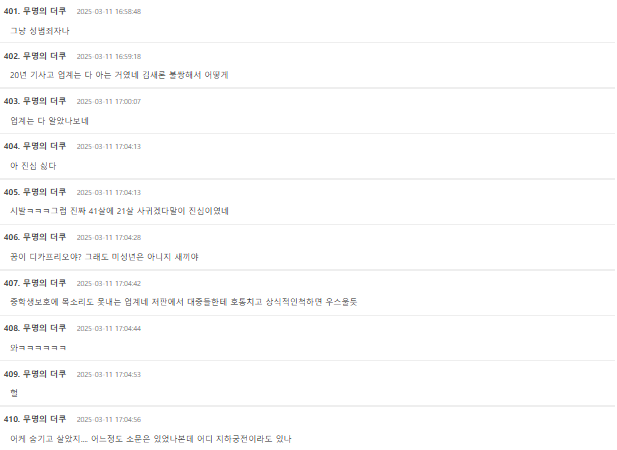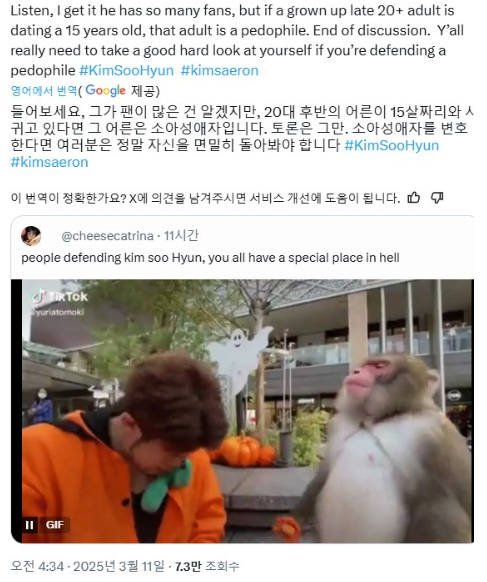Kim Soo-hyun’s Scandal Sparks International Outrage: Is K-Entertainment’s Treatment of Female Celebrities Unfair?

The controversy surrounding Kim Soo-hyun is rapidly gaining traction across international media, particularly in Asia. Major news outlets, including China’s Global Times, Hong Kong’s South China Morning Post, Singapore’s Straits Times, and India’s Times of India, have reported extensively on the scandal, highlighting not only the public reaction but also the significant economic repercussions, such as the termination of advertising contracts. These reports analyze the impact on Kim Soo-hyun’s career and the broader implications for the Korean entertainment industry.
While mainstream Western media has yet to pick up the story, discussions on social media platforms such as X (formerly Twitter), Reddit, and TikTok continue to intensify. Users are not only condemning Kim Soo-hyun himself but also questioning the underlying power structures within the Korean entertainment industry. Many are raising concerns about the treatment of female celebrities in similar scandals and the broader issue of minor protection in the industry. The discourse is evolving beyond a single celebrity controversy into a larger critique of systemic problems within K-entertainment, with some users arguing that cancel culture in Korea disproportionately affects women while male celebrities often face more lenient consequences.

Asian Media Coverage
The controversy surrounding Kim Soo-hyun is rapidly gaining international attention, with major media outlets across Asia extensively covering the issue and analyzing its repercussions. Publications such as China’s Global Times, Hong Kong’s South China Morning Post, Singapore’s Straits Times, and India’s Times of India have reported on various aspects of the scandal, with a particular focus on the economic consequences stemming from the cancellation of the actor’s lucrative advertising contracts. Many of these reports highlight the potential long-term damage to Kim Soo-hyun’s reputation, as brands distance themselves from the actor in an attempt to avoid public backlash.

Despite the widespread coverage in Asian media, major Western news outlets have yet to report on the situation. However, discussions on social media platforms, including X (formerly Twitter), Reddit, and TikTok, have intensified, with users from various countries actively debating the controversy. Beyond criticizing Kim Soo-hyun himself, many online discussions have expanded to address broader systemic issues within the Korean entertainment industry, such as the immense power of agencies, the pressure placed on celebrities, and ethical concerns regarding the protection of minors. As public discourse continues to grow, the scandal is evolving into a larger conversation about the structural problems in the entertainment world, further fueling the controversy.
Social Media Reactions
Despite official statements addressing the controversy, public sentiment on social media has remained overwhelmingly negative, with intense criticism directed at Kim Soo-hyun. Discussions on various platforms have reignited debates about power dynamics in the entertainment industry and ethical concerns regarding relationships between adults and minors.
On China’s Weibo, users have been actively revisiting past media coverage, including old articles and photos, in an attempt to uncover further evidence related to suspicions that Kim Soo-hyun may have been involved with Kim Sae-ron when she was still underage. Many posts depict Kim Sae-ron as a vulnerable individual who may have been taken advantage of, fueling further backlash.

On X (formerly Twitter), the controversy has sparked global discussions, with hashtags such as #KimSooHyun and #CancelKimSooHyun trending. A significant portion of English-speaking users have condemned Kim Soo-hyun, with many accusing him of “grooming” a minor. Some posts have gone beyond the dating allegations, claiming that Kim Soo-hyun distanced himself from Kim Sae-ron and allegedly did not attend her funeral, intensifying public outrage.
One widely shared tweet emphasized the moral concerns surrounding the situation, stating, “A grown man should never take such pictures with a minor,” suggesting that the issue extends beyond a romantic relationship and raises serious ethical concerns. As the backlash grows, calls for a boycott of Kim Soo-hyun’s works have gained momentum, with many former fans declaring that they will no longer support his career. On TikTok, the discontent has manifested visually, as videos of fans destroying his posters and tearing up photographs circulate, symbolizing their disappointment and anger.

Many netizens have also drawn parallels between the scandal and a well-known quote from the popular K-drama “Twenty-Five Twenty-One,” reinforcing the gravity of the controversy, “The law protects minors because their imagination is limited… There are things they don’t need to experience, things they shouldn’t have to go through. When someone does something bad, the difference in perception between an adult and a minor is worlds apart.”
Reddit discussions have been equally critical, with many users expressing firm disapproval. One comment bluntly stated, “A 27-year-old adult dating a minor is problematic, no matter how people try to justify it.” Another Redditor pointed out, “She looked like a child because she was one,” emphasizing the stark difference in maturity between the two individuals when their alleged relationship began.
As discussions continue to gain traction, the scandal is evolving beyond a personal controversy into a larger debate on ethical responsibilities, power dynamics, and the entertainment industry’s role in addressing such issues.
Is There a Gender Bias in Korea’s Cancel Culture?
As the controversy unfolds, some social media users have pointed out potential gender bias in the way Korean celebrities face public backlash and career consequences. Many have argued that male celebrities often seem to be shielded from lasting repercussions, while female celebrities are frequently subjected to harsher criticism and permanent career damage.
One widely circulated tweet summed up this concern, stating, “Cancel culture in Korea seems to apply only to women. No matter how terrible their actions, male celebrities continue to receive support from fans.”

This debate has reignited discussions about Kim Sae-ron’s past DUI incident and how it was handled. Some netizens have questioned whether her agency acted unfairly when suing her for unpaid debt, despite being aware of her financial struggles following the scandal. Others have pointed out that while her reckless behavior was undeniably serious, male celebrities with similar or worse offenses have often been able to make successful comebacks, suggesting a possible double standard in the industry.
As the discourse continues to evolve, the controversy surrounding Kim Soo-hyun has expanded beyond just his personal actions. It has sparked broader conversations about systemic issues within the Korean entertainment industry, including gender disparities in cancel culture, the power dynamics between agencies and artists, and the long-term impact of public scrutiny on celebrities. The case serves as yet another example of the ongoing struggle for fairness and accountability in the entertainment world, prompting many to question whether the industry will ever change or if history will simply continue to repeat itself.








